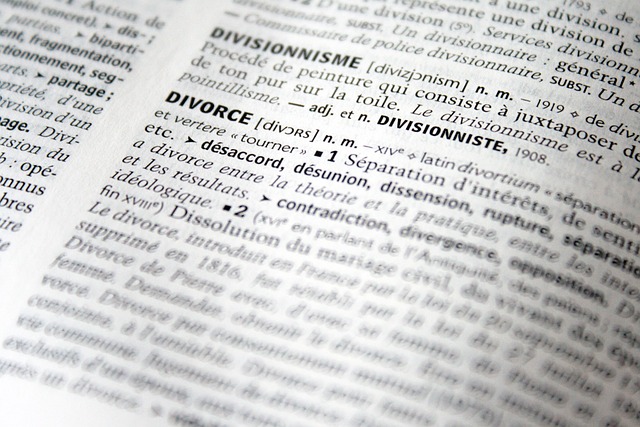Business partnerships in criminal defense can drive growth but require careful management. To end an alliance amicably, start with open communication, negotiate a settlement, and draft a clear termination agreement. This process leverages successful partnership histories, avoids costly litigation, and maintains professional integrity. Criminal defense attorneys act as mediators, using their expertise to guide clients through alternative dispute resolution methods like negotiations or mediation for peaceful partnership dissolutions. Structured steps including detailed asset division plans and review of exit clauses ensure minimal conflict during investigative stages.
Criminal defense attorneys play a pivotal role in navigating complex business disputes, especially when partnerships dissolve. This article explores the intricate legal landscape surrounding business partnerships, focusing on common reasons for termination and amicable dissolution strategies. We delve into the unique challenges faced by attorneys in these situations, offering insights into effective approaches to guide clients through the process of ending partnerships peacefully, following steps to dissolve a business partnership amicably.
- Understanding Business Partnerships and Their Legal Framework
- Common Reasons for Dissolving a Partnership
- Amicable Dissolution: A Collaborative Approach
- The Role of Criminal Defense Attorneys in Business Disputes
- Strategies for Effective and Peaceful Partnership Termination
Understanding Business Partnerships and Their Legal Framework

Business partnerships are a common strategy among criminal defense attorneys looking to expand their practices and offer specialized services. However, navigating these alliances requires careful consideration and a solid legal framework. When partners agree to join forces, they should establish clear terms and conditions, including profit-sharing, decision-making processes, and dispute resolution mechanisms. This foundation is crucial for maintaining harmony and ensuring the successful co-operation of the attorneys involved.
In the event that a partnership becomes unworkable or one party wants to exit, the process of dissolution should be handled amicably. The first step is open communication where all parties express their intentions. Subsequently, they can negotiate a settlement, which might include buying out a partner’s share or reaching an agreement on how to divide cases and clients. This approach often leads to a complete dismissal of all charges in white-collar defense scenarios, leveraging the unprecedented track record of successful partnerships and dispute resolutions.
Common Reasons for Dissolving a Partnership

Partnerships, even those formed within the legal field, are not eternal. There are several common reasons why a partnership between criminal defense attorneys might come to an end, especially when handling high-stakes cases. Misunderstandings and conflicts over strategic decisions, different opinions on case management, or differing financial expectations can lead to tensions. These issues, if left unaddressed, may erode the foundation of their respective businesses, making dissolution a necessary step.
Amicably dissolving a business partnership involves several key steps. Open communication is crucial; both parties should express their concerns and aspirations honestly yet respectfully. Evaluating the respective roles and contributions can help identify areas for improvement or potential red flags. If reconciliation seems unlikely, drafting a clear and mutually agreed-upon termination agreement, detailing the process and division of assets, is essential. This ensures that the dissolution proceeds smoothly, maintaining professional integrity throughout.
Amicable Dissolution: A Collaborative Approach

In the realm of criminal defense, collaboration can often lead to more amicable resolutions, particularly when navigating the complex steps to dissolve a business partnership. This approach emphasizes alternative dispute resolution methods, such as mediation or negotiation, which can help avoid lengthy and costly jury trials. By fostering open communication between all parties involved in the investigative and enforcement process, attorneys can work towards mutually beneficial agreements that satisfy both the client’s needs and the legal requirements.
This collaborative strategy is especially valuable when aiming for winning challenging defense verdicts. Instead of engaging in a bitter battle, lawyers and clients can team up to strategize creative solutions. This not only streamlines the legal process but also ensures that the best possible outcome is pursued. Ultimately, an amicable dissolution through negotiation or mediation can be a game-changer, providing a peaceful resolution that benefits all involved, without the wear and tear of extensive litigation.
The Role of Criminal Defense Attorneys in Business Disputes

Criminal Defense Attorneys play a crucial role in business disputes, often acting as mediators between corporate and individual clients embroiled in complex issues. In cases where a partnership ends sourly or disputes arise over contracts and agreements, these attorneys provide vital guidance. The process typically involves understanding the nuances of both corporate law and general criminal defense strategies, especially when dealing with white-collar and economic crimes.
By employing steps to dissolve a business partnership amicably, legal professionals can help mitigate potential legal conflicts. This may include negotiations, mediation, or even arbitration. Their expertise ensures that all parties’ rights are protected, while also encouraging mutually beneficial resolutions. This approach is particularly effective for resolving disputes before they escalate into full-blown litigation, which can be costly and time-consuming for both businesses and individuals alike.
Strategies for Effective and Peaceful Partnership Termination

Ending a business partnership amicably is crucial for maintaining professional relationships and preserving opportunities for future collaborations. For criminal defense attorneys specializing in white-collar and economic crimes, this strategy becomes even more vital as partnerships often navigate complex legal landscapes across the country. The key to successful dissolution lies in open communication and clear documentation.
Implementing structured steps ensures a peaceful termination: creating a detailed plan for dividing assets and liabilities, thoroughly reviewing partnership agreements to identify any specific clauses regarding exit procedures, and fostering an environment of transparency throughout the process. By adhering to these practices, attorneys can navigate all stages of the investigative and enforcement process with minimal conflict, ensuring both parties’ rights and interests are respected.
Criminal defense attorneys play a pivotal role in facilitating the amicable dissolution of business partnerships. By understanding the legal framework governing business relationships and employing strategies for peaceful termination, these professionals can help resolve disputes efficiently. When partnerships end, following steps to dissolve a business partnership amicably is crucial for maintaining positive relationships and minimizing legal complications. This collaborative approach ensures that all parties involved can move forward with their businesses while preserving professional integrity.






